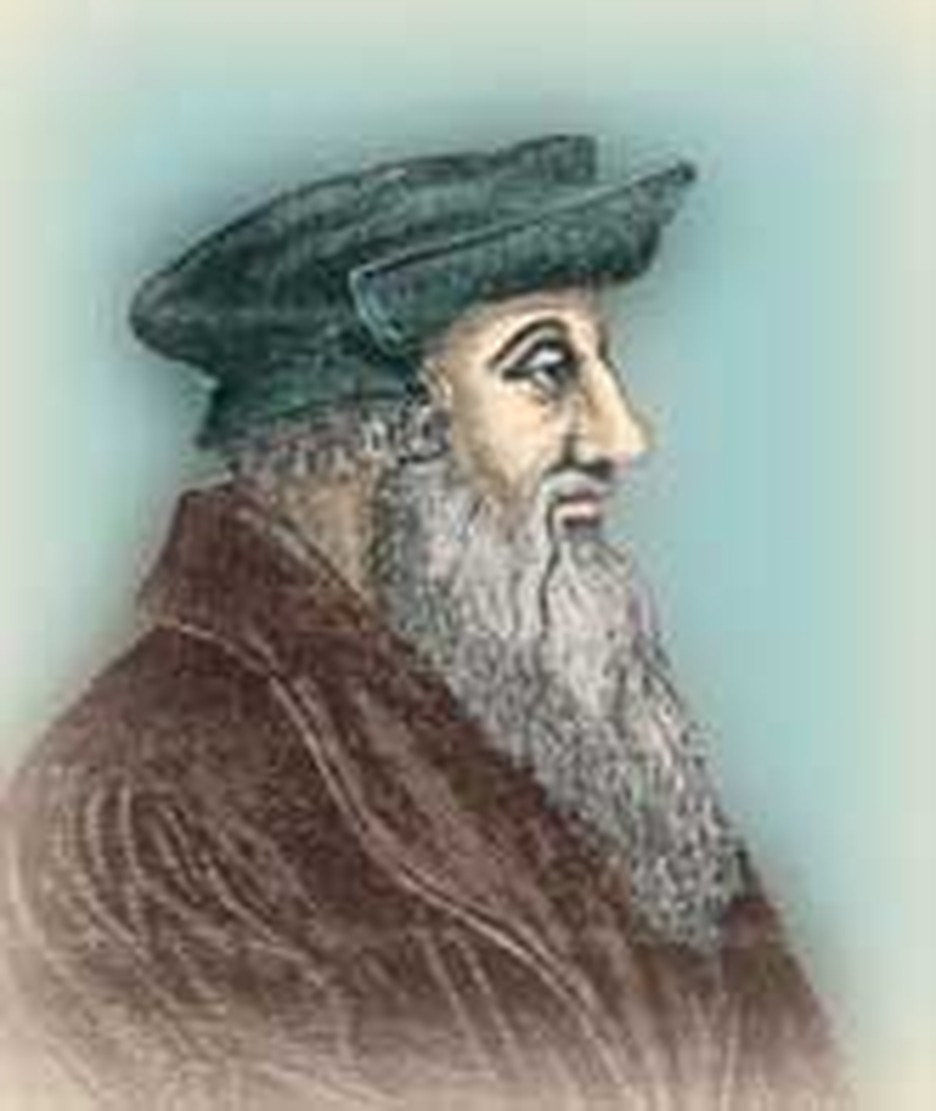
Today most Protestant churches, at least in the western world, take for granted that those who attend a church should have some say in how it is run. That hasn't always been so. Even when the Protestant Reformation began in the sixteenth century, Luther and other reformers thought that the church ought to be directed primarily by the clergy.
The first person to suggest otherwise was a little known reformer called Oecolampadius. (His real name was Hussgen. But in those days it was popular to change one's name into a classical language. "Hussgen" sounds like the German for house-shine, so he became "house lamp" in Greek.) Oecolampadius's suggestion that laymen be allowed a say in church affairs was shot down when he proposed it to the town council of Basle, Switzerland. However, other reformers, such as John Calvin and John Knox agreed with him, and so an important element of religious freedom was brought into the church.
Oecolampadius was a top-notch student of languages. The ground-breaking linguists of the day were Reuchlin and Erasmus. Oecolampadius studied with both. He even helped Erasmus edit and publish the New Testament in Greek which had such a profound effect on the rise of the Reformation.
One way a scholar could earn a little extra money in those days was to translate Greek books for the recently invented and hungry printing press. Oecolampadius translated writings of the Greek fathers. After the Reformation got rolling, he sided with the reformers. Despite weak health, he labored hard for reform in Switzerland.
In 1516, a year before Luther posted his famous theses, Ulrich Zwingli spearheaded a reformation movement in Zurich. He was still a Roman Catholic, but insisted on teaching through the Bible. Around 1523, Oecolampadius began a friendship with Zwingli and drifted away from the more conservative and timid Erasmus.
His relationship with Zwingli is often compared to the relationship of Melanchthon with Luther. A peaceful man, Oecolampadius was tolerant of differences in the Protestant beliefs about the Lord's Supper. He also rebuked harsher reformers for their abrasive behavior. He wrote to William Farel, "Your mission is to evangelize, not to curse. Prove yourself to be an evangelist, not a tyrannical legislator. Men want to be led, not driven." Reformation should be orderly, said Oecolampadius.
He worked so hard in spite of his bad health, that when he died on this day, November 24, 1531, he was only 49. A little-known light of the Reformation was extinguished.
Bibliography:
- Lauchert, Friedrich. "Oecolampadius, John." The Catholic Encyclopedia. New York: Robert Appleton, 1914.
- "Oecolampadius, Johannes." The Oxford Dictionary of the Christian Church. Edited by F. L. Cross and E. A. Livingstone. Oxford, 1997.
- Rupp, E. Gordon. Patterns of Reformation. London: Epworth Press, 1969; especially pp. 3 - 41.
- Various encyclopedia and internet articles.
Last updated April, 2007.




